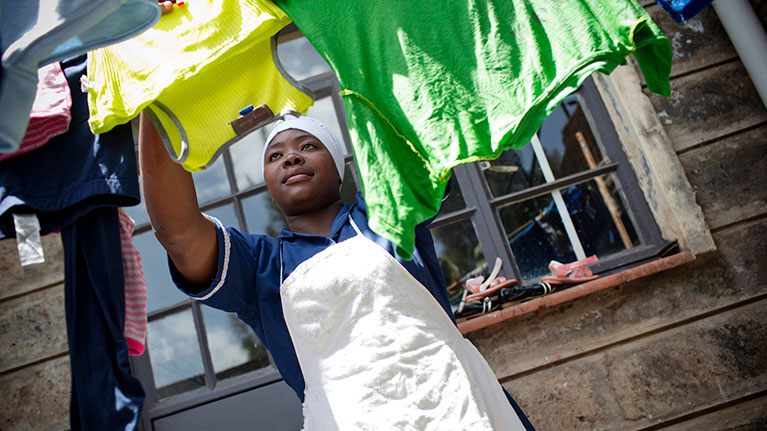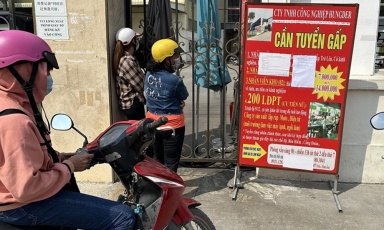ILO: Only six per cent of domestic workers have comprehensive social protection
(LĐXH)- Only six per cent of domestic workers worldwide have access to comprehensive social protection, according to a new report from the International Labour Organization (ILO).

According to the report, "Making the right to social security a reality for domestic workers: A global review of policy trends, statistics and extension strategies", about half of all domestic workers have no coverage at all, with the remaining half legally covered by at least one benefit.
The extension of effective coverage has lagged significantly behind that of legal coverage. Only one-in-five domestic workers are actually covered in practice because the vast majority are employed informally.
Despite their vital contribution to society, supporting households with their most personal and care needs, most of the world’s 75,6 million domestic workers face multiple barriers to enjoying legal coverage and effective access to social security, the report explains.
The extension of effective coverage has lagged significantly behind that of legal coverage. Only one-in-five domestic workers are actually covered in practice because the vast majority are employed informally.
Despite their vital contribution to society, supporting households with their most personal and care needs, most of the world’s 75,6 million domestic workers face multiple barriers to enjoying legal coverage and effective access to social security, the report explains.
They are often excluded from national social security legislation.
As 76.2 per cent of domestic workers (57.7 million people) are women, such social protection gaps leave women particularly vulnerable.
While few domestic workers enjoy comprehensive social protection, they are more likely to be eligible for old-age, disability and survivors’ benefits and medical care, and, to a slightly lesser degree, for maternity benefits and sickness benefits.
As 76.2 per cent of domestic workers (57.7 million people) are women, such social protection gaps leave women particularly vulnerable.
While few domestic workers enjoy comprehensive social protection, they are more likely to be eligible for old-age, disability and survivors’ benefits and medical care, and, to a slightly lesser degree, for maternity benefits and sickness benefits.
Most of them do not have access to social insurance schemes benefits related unemployment or employment injury.
The report also highlights major differences between regions. In Europe and Central Asia, 57.3 per cent of domestic workers are legally covered for all benefits. A little more than 10 per cent have such a right in the Americas; almost none are fully covered in the Arab States, Asia and the Pacific and Africa ‒ regions that include countries where significant numbers of domestic workers are employed.
The COVID-19 pandemic has made “glaringly apparent” the social protection coverage gaps experienced by domestic workers, the report says.
The report also highlights major differences between regions. In Europe and Central Asia, 57.3 per cent of domestic workers are legally covered for all benefits. A little more than 10 per cent have such a right in the Americas; almost none are fully covered in the Arab States, Asia and the Pacific and Africa ‒ regions that include countries where significant numbers of domestic workers are employed.
The COVID-19 pandemic has made “glaringly apparent” the social protection coverage gaps experienced by domestic workers, the report says.
They were among the worst-hit during the pandemic, with many losing their jobs and livelihoods. Many of those who kept their jobs were often exposed to the disease without sufficient protective equipment.
However, domestic workers could rarely rely on adequate health protection, sickness or unemployment benefits, further exposing their vulnerabilities./.
Hong Minh
TAG:












